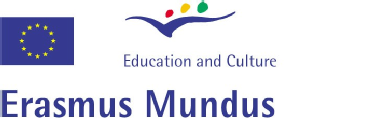Outcomes for students

The programme aims to enable its students to achieve the following learning outcomes:
Knowledge and understanding: upon completion of the programme, students should
- have obtained general knowledge of the significance of, the problems posed by, and the methods employed to understanding complex systems observed in the Natural and Engineering Sciences;
- have obtained practical experience in the mathematical analysis and computer modelling of complex systems;
- have obtained significantly deepened knowledge of the presently most pressing problems, the currently employed techniques, and the recent advances in understanding complex systems in one of the following areas: adaptive systems, information & evolution, or stochastic processes.
Skills and abilities: upon completion of the programme, students should:
- be able to construct mathematical models of complex systems, and make quantitative predictions based upon them, employing mathematical reasoning and computer simulations;
- have acquired the modelling skills to work successfully under supervision in one of the above areas, or to apply their problem-solving skills in a suitable industry project in collaboration with their academic teachers, and last but not least to use their skills effectively in new or initially unfamiliar, interdisciplinary environments;
- be able to communicate their results and conclusions (orally and in writing), and to describe the hypotheses and assumptions these rest on to specialist and to nonspecialist audiences;
- be able to continue to study or work independently, autonomously, and self-directed if necessary;
- be able to work successfully in an interdisciplinary research team.
Formulation of judgments and attitudes: upon completion of the programme, students should be able to:
- demonstrate the ability to formulate judgments considering relevant scientific, societal and ethical aspects, and demonstrate an awareness of ethical aspects on research and development work;
- demonstrate insight into the possibilities and limitations of technology, its role in society and the responsibility of humans for its use, including social, economic as well as environmental and occupational health aspects;
- demonstrate ability to identify their need for more knowledge, and to continuously develop their competence.
Mobility: through the programme students should
- gain confidence in working in European countries (for EU nationals, beyond their own);
- have experience of working and coordinating across national borders;
- appreciate the opportunities of Europe as a unified professional domain.
